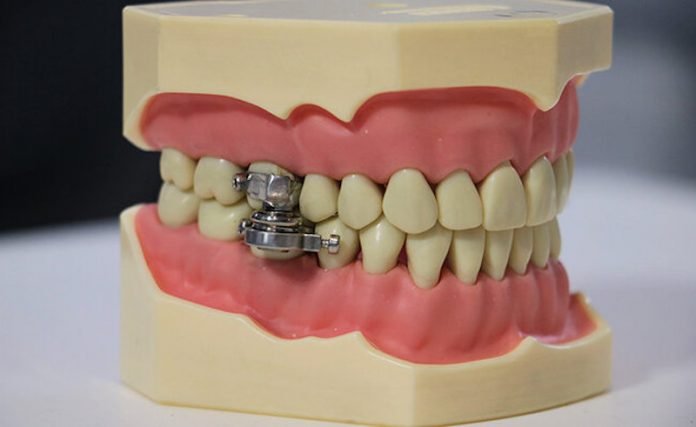
In a new study from the University of Otago, researchers have developed a world-first weight-loss device to help fight the global obesity epidemic.
DentalSlim Diet Control is an intra-oral device fitted by a dental professional to the upper and lower back teeth. It uses magnetic devices with unique custom-manufactured locking bolts.
It allows the wearer to open their mouths only about 2mm, restricting them to a liquid diet, but it allows free speech and doesn’t restrict breathing.
The researchers found participants lost an average of 6.36kg in two weeks and were motivated to continue with their weight loss journey.
They say the device will be an effective, safe, and affordable tool for people battling obesity. It is fitted by a dentist, can be released by the user in the case of an emergency and can be repeatedly fitted and removed.
Recent studies revealed 1.9 billion adults worldwide are overweight and 650 million are obese and being overweight or obese results in about 2.8 million deaths a year.
It is estimated about 57 percent of the world’s adult population will be overweight or obese by 2030.
The new tool could be particularly helpful for those having to lose weight before they can undergo surgery, and for diabetes patients for whom weight loss could initiate remission.
While bariatric surgery plays a major role in the management of morbid obesity, it cannot be relied upon to manage this “global epidemic.” It costs about $24,000 and patients live with the consequences of that for life, which can be quite unpleasant.
The practice of surgically wiring people’s jaws shut became popular in the 1980s, but it came with risks; vomiting brought with it the risk of choking, and after nine to 12 months, the patients developed gum disease.
In some cases, there were continuing issues with restriction of jaw movement and some developed acute psychiatric conditions.
The team says that once patients are fitted with the device, after two or three weeks they can have the magnets disengaged. They could then have a period with a less restricted diet and then go back into treatment.
This would allow for a phased approach to weight loss supported by advice from a dietician allowing long-term weight loss goals to be realized.
If you care about weight loss, please read studies about this diet can effectively help you lose weight and reduce cholesterol and findings of this common eating habit may lead to high blood sugar, weight gain.
For more information about weight loss and your health, please see recent studies about this tea may help you lose weight during sleep and results showing that this popular weight loss diet linked to higher heart disease risk.
The study is published in the British Dental Journal. One author of the study is Professor Paul Brunton.
Copyright © 2021 Knowridge Science Report. All rights reserved.



